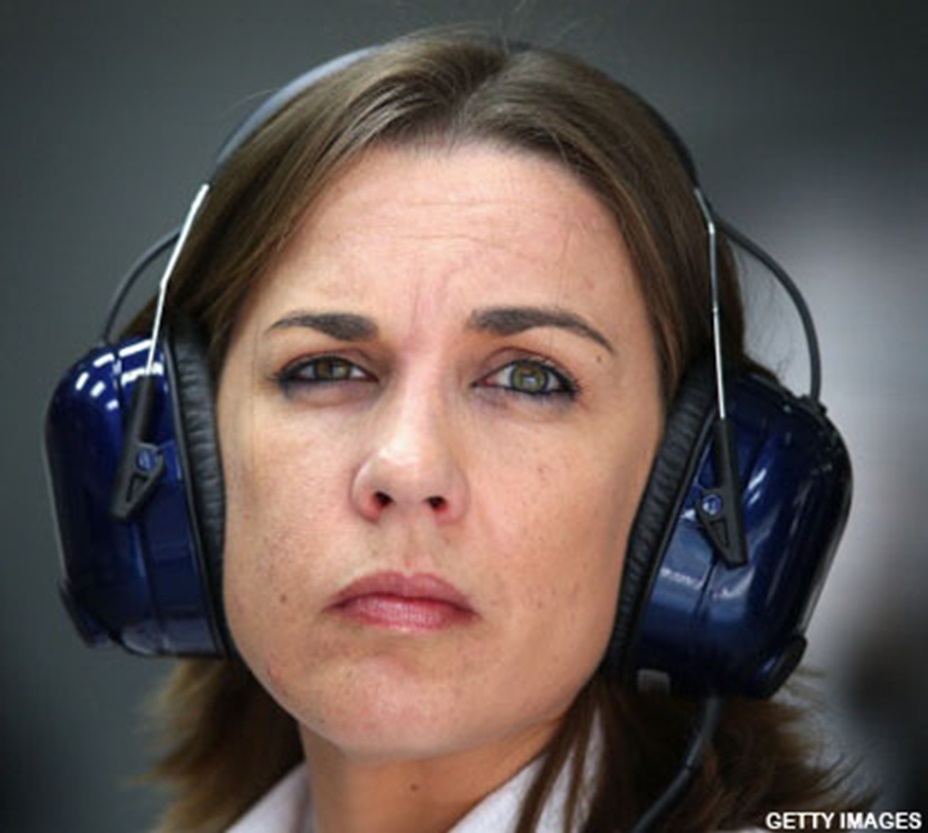Williams F1 Deputy Team Principal Claire Williams said that there are “absolutely no concerns” around the team’s finances for next season, despite losing one of its main sponsors. Williams recently announced that Brazilian driver Felipe Massa will replace Venezuelan Pastor Maldonado in the team’s driver lineup for ’14 and as a result, PDVSA will end its deal with the team at the end of the year. The state-owned Venezuelan oil company will not be present on the team’s cars in ’14, but it will not further impact Williams’ ability to race next season. Williams told SBD Global at the Circuit of the Americas, “When we looked at the PDVSA arrangement, we had to make sure that the outcome of that maintained that stability for the business. So looking ahead to next year, we wouldn’t have gone ahead with the arrangement that we made unless that was the case. We wouldn’t have entered into this arrangement if we weren’t sure that we had the budget to go racing for next year, so there are no concerns around that.”
ALWAYS ROOM FOR MORE: While Williams said that the team is in a financially stable position at the moment, it is always looking to attract new sponsors. However, the current economic climate and the hefty price tag that is associated with an F1 sponsorship make it difficult. Williams said, “I think people have this view that Formula One sponsorships kind of come in it at $10, $30, $40, $50 million. It’s not true. We do partnerships for much smaller numbers than that, and we always want to talk. We are an independent team. We have to keep our budget at a certain level in order to continue racing, so we are always willing to talk about much, much lower numbers.” F1 is a property that has a lot to offer to potential sponsors. Two billion people watch the sport, so for brands that want to get their message out there, it is one of the most high-profile global sports; it is also a "fantastic" platform for global advertising and business-to-business opportunities, Williams added. However, another factor that makes it difficult for Williams to attract sponsors is on-track performance. Williams, which was a perennial title contender in the ‘90s, winning four drivers and five constructors’ titles, has been struggling for several years now. “At the moment, our share of voice is on the decline because of where we are on a track-performance prospective, whereas Red Bull is right up at the top,” Williams said. “If you are looking for that brand exposure piece, if you are a sponsor coming into the sport, then we are really fighting hard to try and convince them to come and join Williams. But we are really lucky at Williams because of our heritage in the sport; we’ve been racing for 36 years. We are a very specific brand.”
MORE MONEY, MORE PROBLEMS?: With the majority of teams up and down the grid struggling to survive, many have called for some sort of cost-control measure. But while talks on the issue have continued for years, they remain largely without result. Williams said that her team would be in favor of such a measure, but not every team agrees with that notion. She said, “We are all very competitive in this sport and there’s a kind of general thesis that the more money you have the more successful you can be. So the teams at the top of the grid, why would they want to agree to a cost cap? And teams at the lower end of the grid are saying, ‘We got to do this for the sake of our sport,’ so we can keep competing. I think there’s a middle ground to be found because we have to achieve it for a number of different reasons.” A budget cap of some sort would keep the smaller teams in the sport and help them compete fairly, Williams said. “They are never going to be able to compete if we are looking at teams at the top end of the grid that are spending near $300 million. That’s just crazy. There’s got to be a level playing field because that creates the excitement for the fans. We got to look to our fans and say, ‘Do they think it is appropriate that we are spending $300 million a year when we are in the current economic situation that the world is in?’” There are numerous arguments for and against cost controls, but next year’s new regulations and high engine prices might put some pressure on the issue. Williams: “I’m not sure that the costs have been given a huge amount of consideration and they are hurting a lot of teams.”




